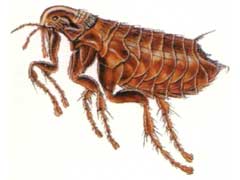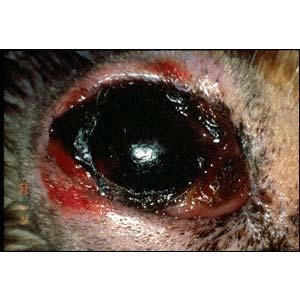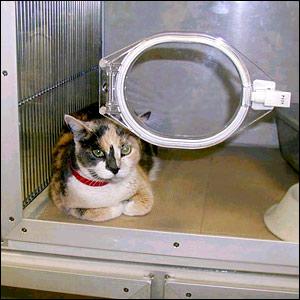Unfortunately there are a number of parasites that can cause problems for cats and giardia is one of them. Giardia is an intestinal parasite that infect and can cause problems in a number of animals including cats and dogs.
This intestinal parasite can cause damage in the gastrointestinal (GI) tract and if left untreated it may cause severe symptoms. But there are some things you can do to prevent this from infecting your cat. First it is important to know a little more about it so you can prevent and treat it early if necessary.
How Do Cats Get Giardia?
This parasite is common in lakes and streams but it can also be found in puddles and even water bowls. Infected animals can pass it through their feces where it can live for several months and infect other animals.
For many this is another argument for keeping your cat indoors. But if you have a cat that goes outdoors you may want to keep water bowls that other pets use away from the litter box; it's usually a good idea to keep the food and water separate from the litter box anyway. If your cat does go outside keep a couple bowls of fresh water (change daily) so she isn't tempted to drink from other sources.
What Are The Symptoms of Giardia?
The initial symptoms of a giardia infection include excessive flatulence and diarrhea, but some cats don't develop these symptoms so it can be hard to catch right away. If left untreated for a while symptoms may also include weight loss, vomiting and lethargy. But these can also be common symptoms of other cat health problems.
Diagnosing And Treating Giardia in Cats
If you notice any of these symptoms in your cat you should take your cat to the vet to rule out other potential problems or things that may be causing these symptoms. Sometimes a change in diet or ingesting something they are not supposed to can cause these symptoms as well.
Giardia cysts can be a bit difficult to detect with a standard fecal flotation test so your vet may want to use a special stain designed to detect this parasite better in fecal samples.
In most cases your vet will probably recommend using antiparasitic drugs to treat the parasite. Be sure to ask about all of the benefits and risks of using these drugs and ask if there is anything else you can do to alleviate the symptoms.
Luckily there are a lot of good treatments for intestinal parasites, but it is important to seek help if you ever suspect them. Not only can they cause health problems for your cat but they may also cause problems for others in the household.

 Cat Fleas on Humans – How To Avoid Getting Bitten?
Cats m
Cat Fleas on Humans – How To Avoid Getting Bitten?
Cats m
 Ocular (Eye) Pain and Squinting in Cats
Ocular (Eye) Pain and Squinting in Cats
Ocular (Eye) Pain and Squinting in Cats
Ocular (Eye) Pain and Squinting in Cats
 Anorexia in Cats
Anorexia (Loss of Appetite) in Cats
Anorexia in Cats
Anorexia (Loss of Appetite) in Cats
 Feline Leukemia Symptoms – What To Watch Out For?
Accord
Feline Leukemia Symptoms – What To Watch Out For?
Accord
 Dyspnea (Trouble Breathing) in Cats
Dyspnea (Trouble Breathing) in Cats
Dyspnea (Trouble Breathing) in Cats
Dyspnea (Trouble Breathing) in Cats